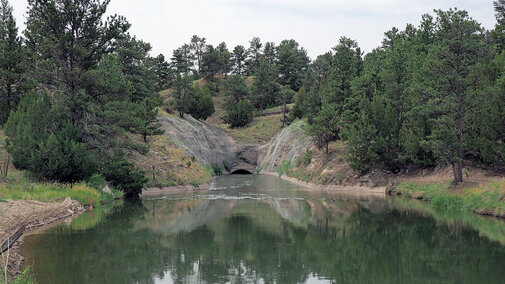Replacement of the Goshen/Gering-Fort Laramie canal irrigation tunnels No. 1 and 2 was expected to begin this fall. However, the permitting process has slowed this objective and is awaiting final approval. It is hoped that the permitting process will be completed soon and some preliminary work can be completed before water deliveries are started in the spring of 2025.
The preliminary work includes building access roads to the construction sites, installing power lines to serve the construction equipment during the tunnel replacement, and working on the tunnels' entrances and exits. The final cost of the construction project has yet to be determined. Both irrigation districts/states have contributed approximately $45 million dollars for the tunnel replacement, with the balance coming from a loan from the Bureau of Reclamation, which must be approved.
If all goes well with permitting approval, secure funding, and engineering plans are completed, the actual replacement of the tunnels can commence in the fall of 2025. The irrigation districts plan to start work with Tunnel No. 2. The boring machine will be built on site, and the construction will be started at the exit end of the tunnel, progressing up the tunnel to the entrance. The old tunnel will be bored out larger than the existing tunnel, so the old tunnel and any construction timbers from the initial construction will be removed. As the tunnel excavation progresses in five-foot increments, the old tunnel and surrounding substrate will be removed. Pre-cast reinforced concrete sections will be installed and bolted together as work progresses up the tunnel. The void left between the outside of the new tunnel wall and the tunnel substrate will be filled with grout. Replacement of Tunnel No. 1 would begin in the fall of 2026.
An update on the tunnel replacement will be presented at the 2025 Yonts Water Conference, which will be held on Wednesday, April 9, 2025, at the Panhandle Research, Extension, and Education Center in Scottsbluff, Nebraska.
A complete background and history of the tunnel collapse and canal breach can be found on CropWatch's canal irrigation page.

